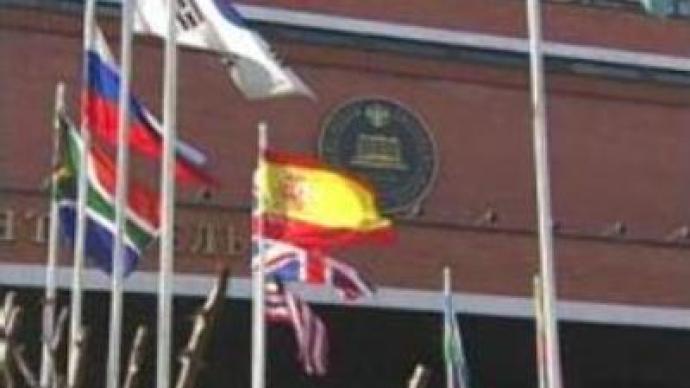Experts & diplomats discuss multipolar world model in Moscow

The prospects of a world with multiple centres of power have been the focus of a conference in Moscow. Experts and politicians assessed the viability of the contrasting “unipolar” model, which they say is supported by the U.S.
As Russia’s top politicians are continuing to suggest the world with a single pole of power is inherently instable – not to speak about its justness – experts are trying to understand, whether it will work. After the Soviet Union collapsed the U.S. remained the only superpower, and the bipolar system of global power-sharing was replaced by a unipolar one. “There should be a synthetic approach, joint decision making and implementation. A power generating instability cannot dictate its directives to other actors. They simply will not be accepted. And Russia, as a historically multicultural state, understands this idea well and propels it,” said Vladimir Slutsker from the Federation Council of Russia.Russia’s growing frustration with the existing situation saw its climax in President Vladimir Putin’s much publicised speech at the Munich Security Conference. “I believe that in the contemporary world the unipolar model is not simply unacceptable but also impossible. Not only because today no power will have sufficient military and political resources to create a viable unipolar model. This model cannot and will not work because it lacks moral base, underlying contemporary civilization,” said Mr Putin.President Vladimir Putin did not restrain himself to vague warnings and went on to openly accuse the U.S. of extending its influence and proving national security at the expense of other countries. Experts say the remarks on security concerned the Iraqi and Iranian problems. But the hottest issue for Russia is the U.S.’s decision to deploy its missile defence elements in Eastern Europe in spite of Moscow’s objections. And Moscow is not alone in its quest for a world with more consensus and less imposed decisions. “India has always been for a multipolar world and we believe that most of the problems today are from the unipolar system. But we also believe that multipolarity is definitely on the cards – if not politically of militarily – at least economically,” said Divyabh Manchanda, Deputy Ambassador of India to Russia. Multi-polarity is also one of the declared goals of China’s foreign policy. Chinese President Hu Jintao made it clear in his Moscow speech as he was inaugurating the Year of China in Russia.
You can share this story on social media:












